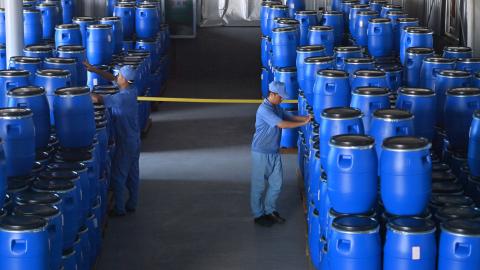T here is something odd about someone describing a child as having excellent potential, as the distance between potential and actual achievement often turns out to be more like a chasm than a gulch. It would not be surprising, then, to hear that the publics high expectations for the biotechnology industry have been for naughtthat this scientific prodigy was, in the end, merely average. That is far from the case, argues Michael Fumento in his new book Bioevolution. I believe that biotechnology is more promising than we can even imagine, he writes. According to Fumento, biotech is one industry that will reachand possibly even exceedits potential.
here is something odd about someone describing a child as having excellent potential, as the distance between potential and actual achievement often turns out to be more like a chasm than a gulch. It would not be surprising, then, to hear that the publics high expectations for the biotechnology industry have been for naughtthat this scientific prodigy was, in the end, merely average. That is far from the case, argues Michael Fumento in his new book Bioevolution. I believe that biotechnology is more promising than we can even imagine, he writes. According to Fumento, biotech is one industry that will reachand possibly even exceedits potential.
The author of groundbreaking books on AIDS, obesity, and pollution, Fumento, a fellow at the Hudson Institute, is well known for taking contrarian positions on controversial issues. In The Myth of Heterosexual AIDS (1993), for example, he chastised the media and AIDS activists for knowingly playing on the publics fears, inflating the risk of heterosexual contraction of HIV and politicizing the AIDS public health crisis in the process. He has also taken on junk science claims about the pesticide Alar, the dangers of silicone breast implants, and second-hand smoke. Fumento has even been bold enough to challenge a recent darling of American culture: the supposedly foolproof and wildly popular Atkins diet. Fumento has been our delightfully cranky conscience on many a media-generated health scare, and he describes himself proudly in this book as a professional skeptic.
When a professional skeptic becomes an eager convert, the results are not always pretty. The overzealousness of the newborn enthusiast can lead to poor judgment, and Fumento is clearly an enthusiast about biotech; at one point he confesses to dosing himself daily with a new kind of supplement intended to increase longevity. Fortunately, Fumento does a decent job of avoiding the worst vices of enthusiasm, such as the tendency to slide into sheer boosterism. Fumento is aware that journalists and lawmakers, often seizing on stray press releases from the biotech industry, tout breakthroughs that are actually only piecemeal, if welcome, advances in the field of biotechnology. He properly criticizes observers who make sweeping claims about biotech with little knowledge of the science fueling it.
The subtitle of the book signals Fumentos intention: to tell us how biotechnologies are changing our world. The book is largely descriptive; even when Fumento does wade into controversies, he does so after marshalling considerable scientific evidence. With nearly encyclopedic detail and with a clarity of style that is to be commended, given the often-complicated technical material he is describing, Fumento takes us on a heady tour of these new technologies. The scope of the book is broad, covering everything from genetically modified foods to pharmacogenomics, gene therapies, and biotech solutions to pollution.
As one might imagine from his previous work, some of the best sections of Fumentos book are those where he shifts from chronicler to contrarian. Discussing the controversy over stem-cell research, for example, Fumento notes how the media and special interest groups, often acting on ideological motivations, have succeeded in downplaying the demonstrated success of (non-controversial) adult stem-cell research while claiming, without evidence, great benef

















